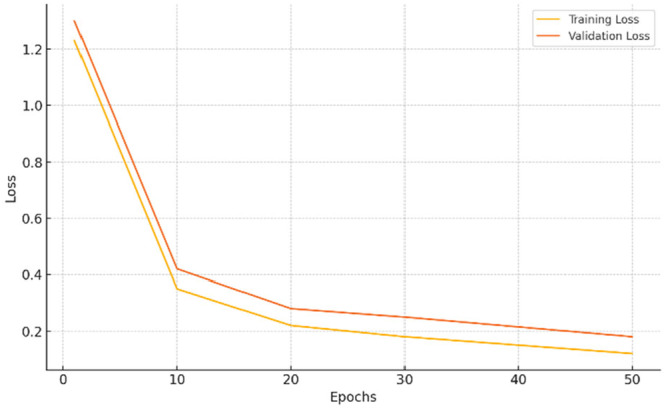Deep Learning for Early Detection of Cardiovascular Diseases From Medical Imaging
Abstract
Background
Cardiovascular diseases (CVDs) remain a leading cause of mortality worldwide, making early detection vital for reducing morbidity and death rates. Echocardiography is a widely used, noninvasive imaging tool for diagnosing CVDs, but manual interpretation can be time-consuming and subject to variability. This study aims to evaluate the performance of a deep learning model using echocardiogram videos for the early detection of CVDs.
Methods
We applied a convolutional neural network (CNN), based on the ResNet-50 architecture, to the EchoNet-Dynamic data set, which includes echocardiogram videos. Preprocessing involved resizing frames and applying augmentation techniques to enhance model robustness. The data set was split into training (80%) and testing (20%) subsets. The model was trained to classify patients based on the presence or absence of CVD using temporal video features.
Results
The CNN model achieved strong performance metrics, with an overall accuracy of 92.3%, a precision of 91.5%, a recall of 92.7%, and an F1-score of 92.1%. The area under the receiver operating characteristic curve (AUC-ROC) was 0.95, indicating excellent discriminatory ability. These results highlight the model's capability to detect CVDs accurately from dynamic echocardiographic imaging.
Conclusion
This study demonstrates the potential of deep learning, particularly CNN-based models, for automating the early detection of CVDs using echocardiogram videos. The high performance of the model suggests it could contribute to faster, more accurate, and cost-effective diagnosis in clinical practice. Future research should focus on improving model generalizability across diverse populations and enhancing interpretability for integration into clinical workflows.




 求助内容:
求助内容: 应助结果提醒方式:
应助结果提醒方式:


